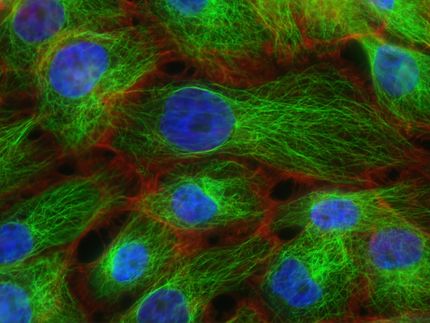A strategy for combating drug-resistant cancers
Advertisement
Many cancer therapies function by activating proteins like Caspase-3 (CASP3) that promote cell death. Several forms of cancer develop resistance to these drugs by down regulating CASP3 through an unknown mechanism. In the absence of CASP3, tumor cells produce another cell death promoting protein CASP7, but it is rendered inactive by the X-linked inhibitor of apoptosis protein (XIAP). In the Journal of Clinical Investigation, Po-Huang Liang and colleagues at Academia Sinica identify a compound (I-Lys) that disrupts the interaction between CASP7 and XIAP. Release of CASP7 from this complex in drug resistant cancer cells activated cell death and reduced malignancies. Furthermore, no adverse side effects were observed in non-tumor cells treated with the drug. In the accompanying commentary, Gregory Gores from the Mayo Clinic explains that these results are promising for combatting drug resistant cancers, but more work needs to be done to establish if I-Lys will be safe and beneficial for human use.
Organizations
Other news from the department science

Get the life science industry in your inbox
By submitting this form you agree that LUMITOS AG will send you the newsletter(s) selected above by email. Your data will not be passed on to third parties. Your data will be stored and processed in accordance with our data protection regulations. LUMITOS may contact you by email for the purpose of advertising or market and opinion surveys. You can revoke your consent at any time without giving reasons to LUMITOS AG, Ernst-Augustin-Str. 2, 12489 Berlin, Germany or by e-mail at revoke@lumitos.com with effect for the future. In addition, each email contains a link to unsubscribe from the corresponding newsletter.


























































